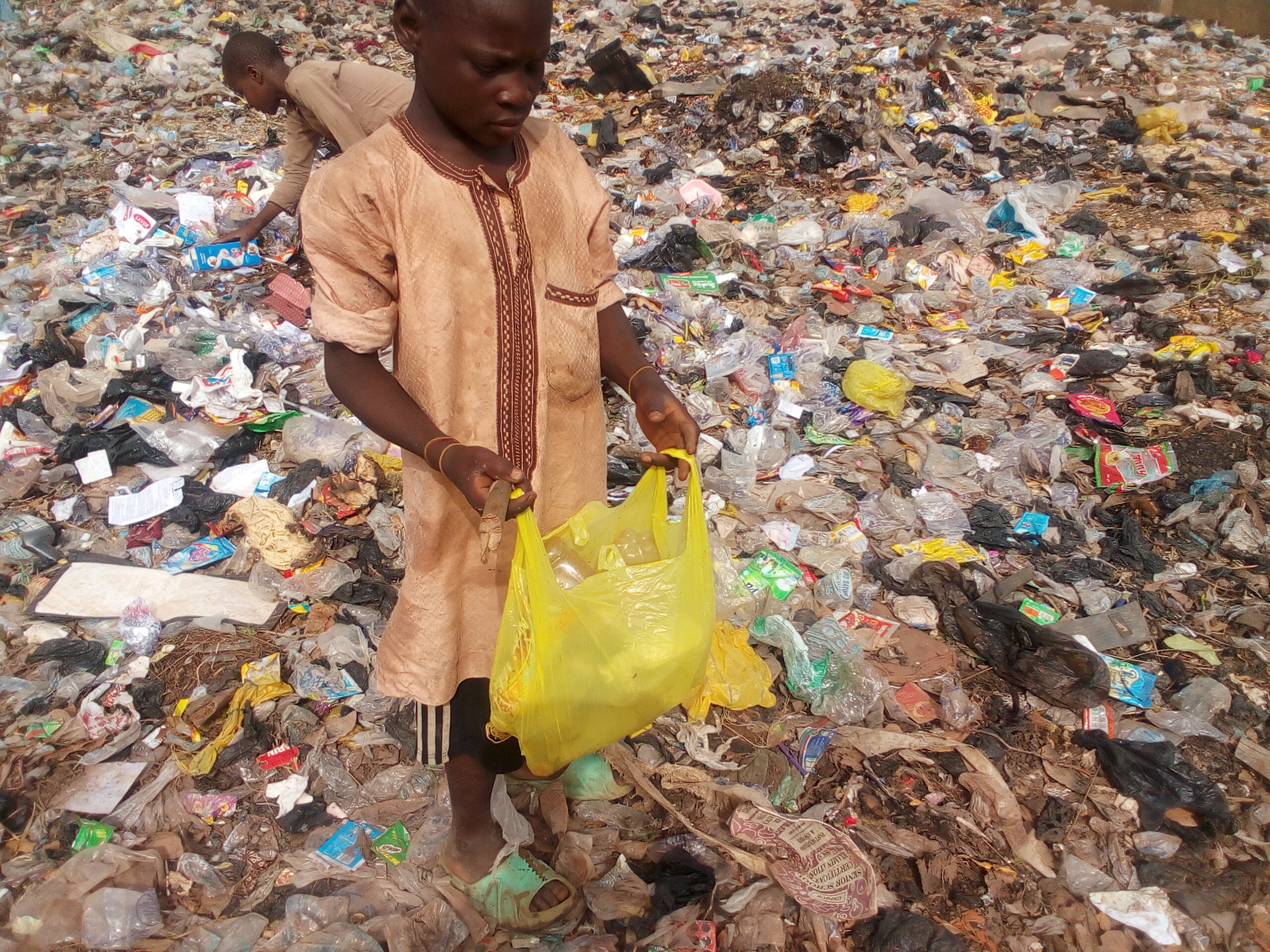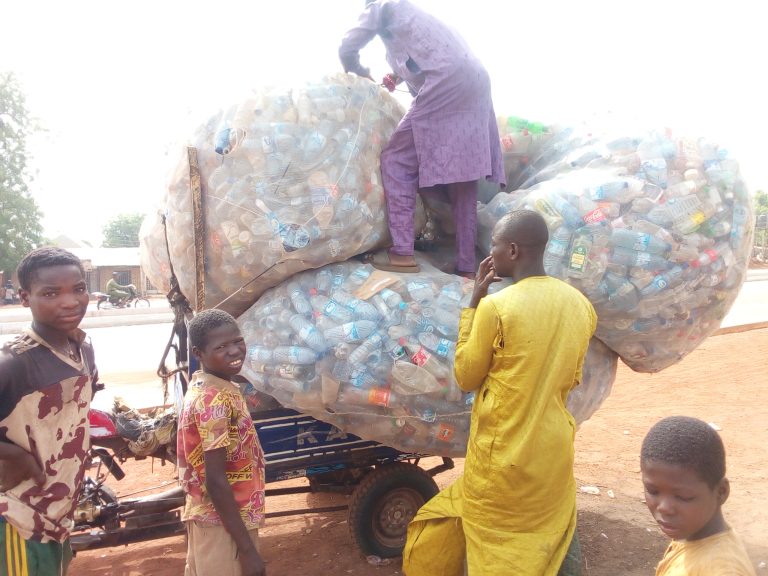In the heart of Sokoto State, a quiet revolution is underway—fueled not by oil or gold, but by empty plastic bottles. Across the city, women, children, and informal workers are transforming discarded containers into a lifeline, selling them to local recyclers known as Colaba.
What once lined streets and littered trash heaps is now a source of daily income for hundreds.
The waitress’s hustle
A waitress at Pinnacle Hotel on Airport Road, Mrs. Amina collects bottles while cleaning the hotel grounds.
“Every day, I gather about 1,000 to 1,500 bottles. The evening shift is the best—I can earn up to ₦4,500. In the morning, I make around ₦2,500. It’s not a lot, but in today’s economy, it helps.”
She explained that Colaba buyers don’t pay much per bottle, but the volume makes the effort worthwhile.
Bank cleaner’s weekly savings
Miss Fatima, a cleaner at Access Bank on Bank Road, turns workplace waste into weekly savings.
“I find about 70 to 80 bottles each day and collect over 400 by Friday. I sell them to Colaba for ₦1,200 to ₦1,400.”
Fatima has a personal savings box where she keeps the earnings:
“Last December, I broke it open and had saved over ₦60,000. That money helped me with something important. Collecting bottles has changed things for me.”
Meat vendor funds her goals with bottles
Mrs. Zainab, who sells fried meat and pepper soup at the police mess, also joins the bottle economy.
“Each day, I collect about 170 to 180 bottles. It’s competitive—children even come to buy them from me at ₦2 per bottle.”
Zainab earns about ₦3,000 a week.
“I saved for six months and was able to buy my own phone. Everyone at the mess knows me for this hustle.”
Weekend collector: Weddings and waste
Mrs. Rahila, who lives on Offa Road, collects bottles during weekend celebrations.
“I go to weddings and birthday parties on Fridays and Saturdays. At big events, I fill 3 to 4 sacks—sometimes I even use a mosquito net to gather more bottles.”
She makes around ₦4,000 per weekend.
“This extra money helps me feed my family and support my children’s school expenses.”
Children finding support in trash
Eight-year-old Musa, one of 23 family members living in Tamage, explained his routine:
“I leave home at 7:00 a.m. and search dumps around Danbawu. I can make more than ₦2,000 a day. We’re a group of 14 kids—we divide the bottles so everyone can eat.”
Michael, a student at Bravo School near the airport, takes a more casual approach.

“I just pick bottles when I see them. I keep them in a carton at home. When it’s full, I sell them to a woman who makes zobo. She pays ₦3 per bottle.”
Behind the bottle business
A bulk buyer, Mr. Abdul shared the business side of bottle collection:
“I buy bottles by the kilo. One kilo is ₦500 and contains around 300 to 400 bottles. I don’t buy less than 10 kilos.”
When he has enough stock, he hires a pickup truck and sells to a larger dealer who transports them out of state in bulk.
What might seem like trash to many is a lifeline for others in Sokoto. In a city where every naira counts, women and children are showing that innovation can come from the most unexpected places—even from the bottom of a discarded bottle.


